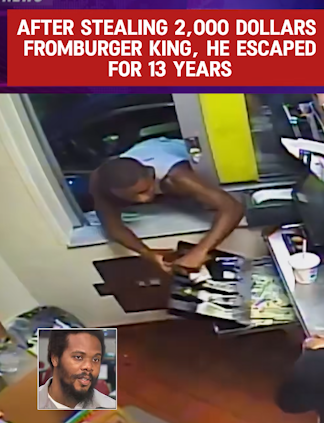
“The Man Time Forgot: How a Clerical Error Gave One Convict a Second Chance at Life”
In 2010, Michael Anderson stood before a judge and received a harsh but fair sentence: 13 years in prison for robbing a Burger King. He had stolen $2,000 during the crime—an act driven by desperation, not violence. Like many young men caught in the grip of bad decisions, Anderson expected to spend the next decade behind bars. But then something unexpected happened: no one came to take him to prison.
A clerical error buried deep in the justice system somehow marked Anderson as already incarcerated. The paperwork was processed. The box was checked. As far as the system was concerned, he was serving his time. But in reality, he was still at home—free.
At first, Anderson was terrified. He knew the mistake would catch up to him eventually. But as days turned to months, and then to years, the fear faded. He didn’t hide. He didn’t run. He simply waited… and waited.
And then, he changed.
Anderson didn’t squander his freedom. Instead, he transformed it. He got married, started a successful construction company, and became an active mentor in his community, helping young people stay off the path that once nearly ruined his life. He paid taxes, obeyed the law, and became a respected figure in his town. He believed—hoped—that perhaps the system had quietly forgiven him.
Thirteen years later, in a twist that seemed pulled from a movie script, the justice system realized its error. As Anderson’s supposed release date approached, corrections officials noticed he had never actually been in prison. Within days, officers appeared at his front door and took him into custody.
In court, Anderson broke down when told he might finally have to serve the full sentence. He pleaded his case, and the community rallied behind him. His lawyers argued that he had done what the prison system aims to achieve: rehabilitation, but on his own terms.
The judge agreed.
Acknowledging Anderson’s complete transformation, his clean record, and the positive impact he had made in his community, the judge ruled that serving the sentence would serve no purpose. Anderson was released and officially granted the freedom he had unknowingly lived with for 13 years.
This wasn’t just a story of a forgotten file—it was a story of redemption, of second chances, and of a man who became the version of himself the justice system had once tried to create through punishment.
Sometimes, the best rehabilitation doesn’t happen behind bars—it happens in the real world, when someone chooses to change.



